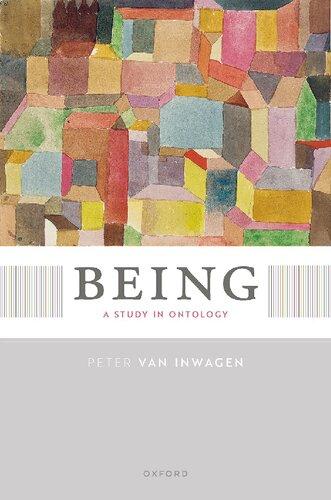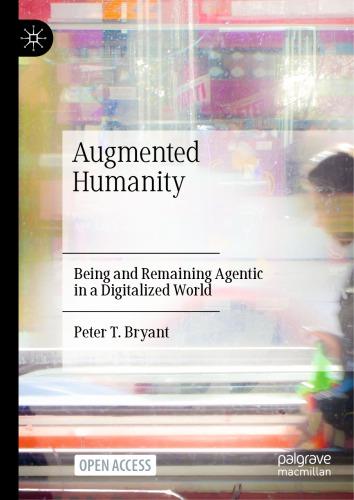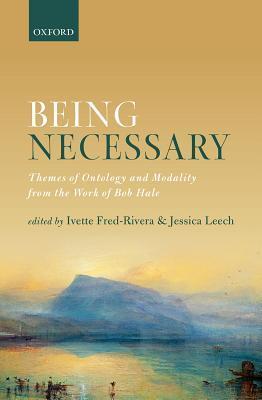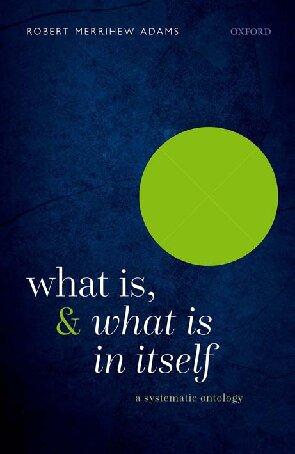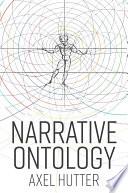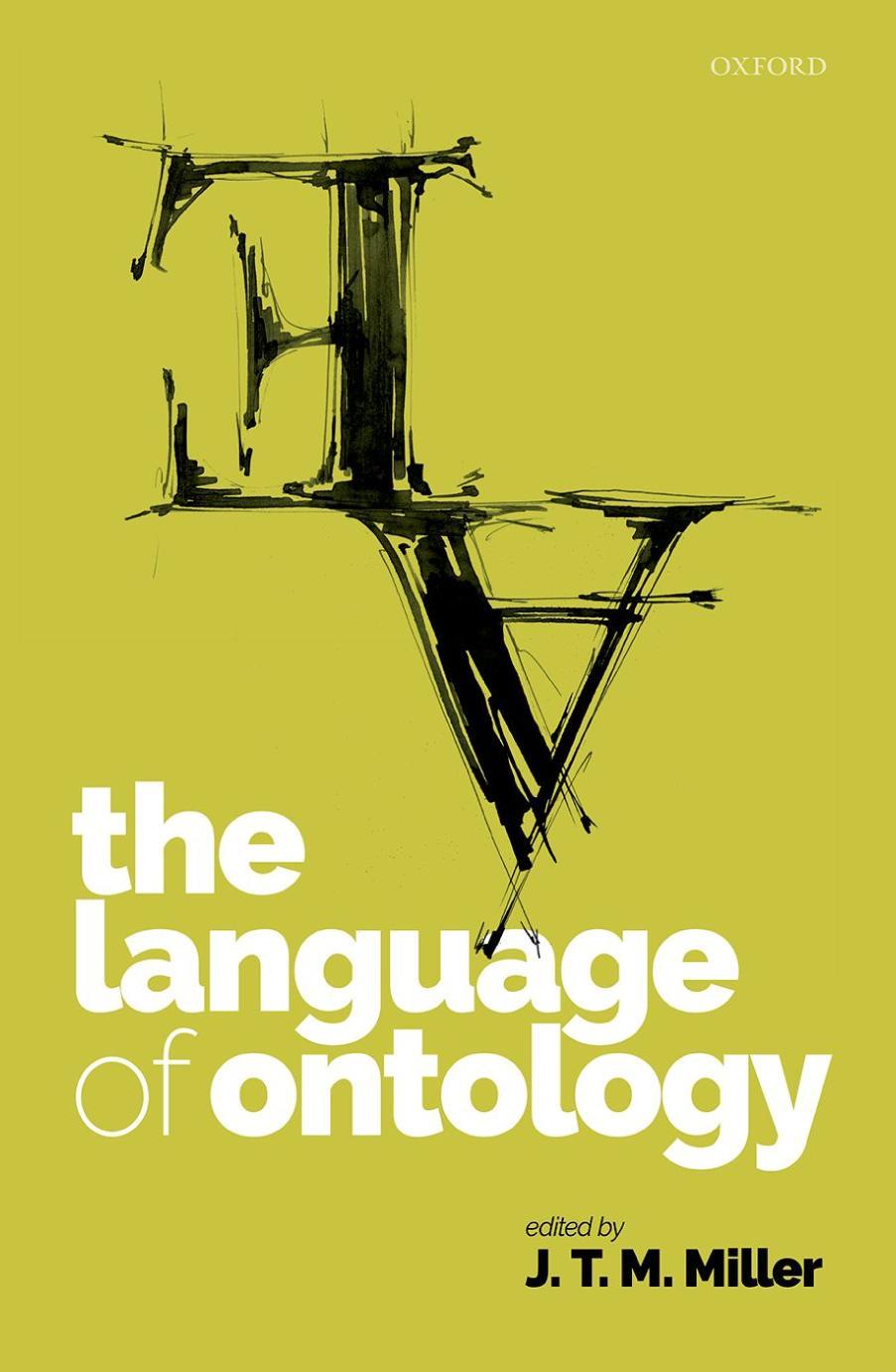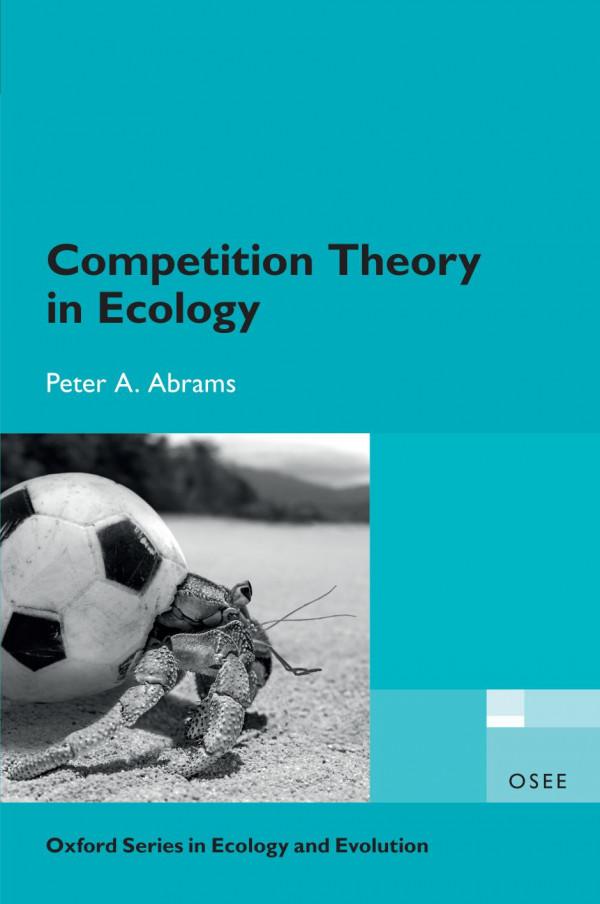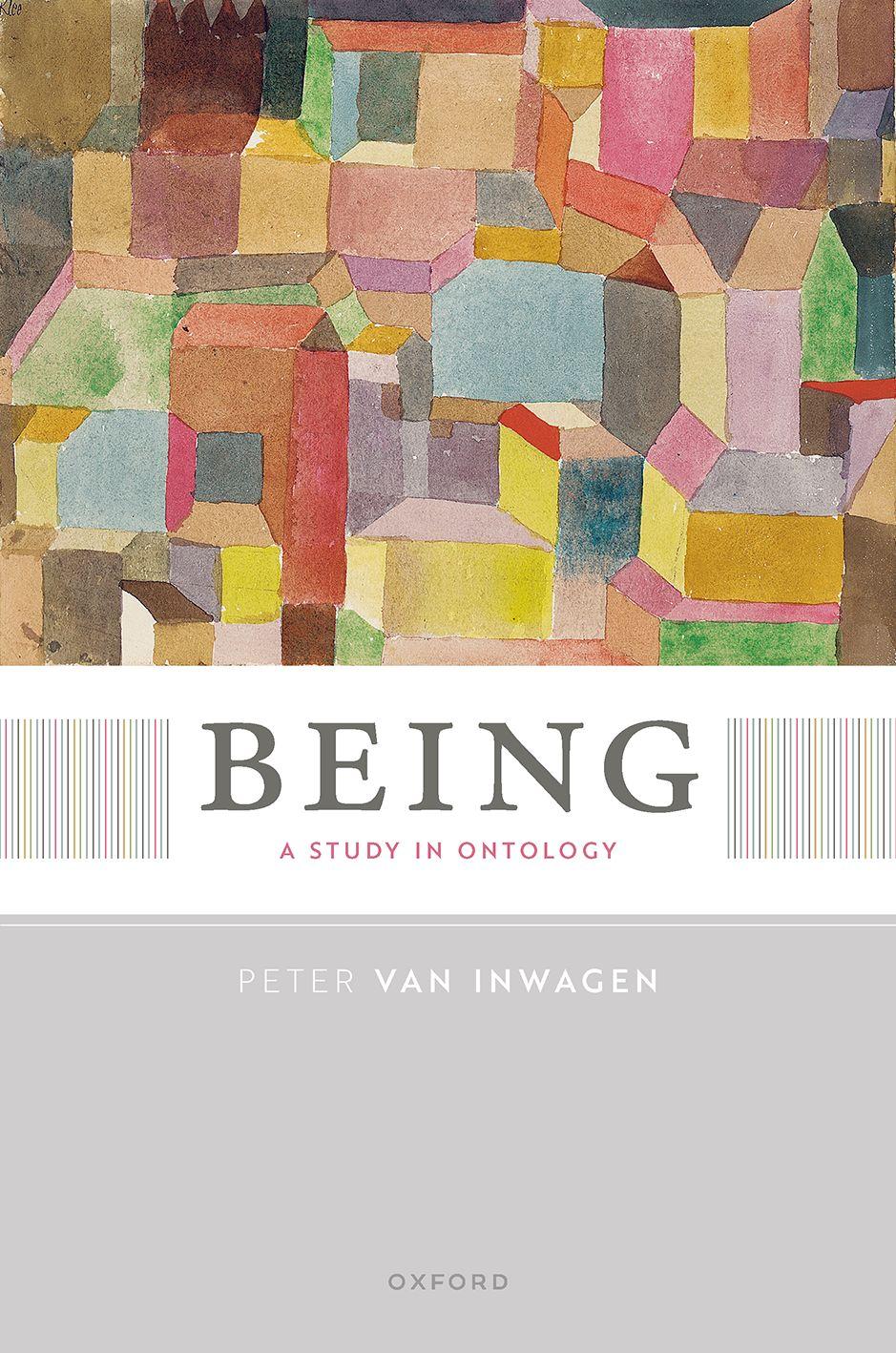ForLisette
InimicusPlato,sedmagisinimicafalsitas.
Tarski
Preface
I.BeingandExistence1
II.BeingandNon-Being40
III.BeingandAbstraction84
IV.BeingandPossibility121
V.BeingandGenerality177
VI.LightweightPlatonism:AnOntologicalFramework231
Preface
NoonecandenythatW.V.Quinewrotemanysplendidlyquotable(andin consequencemuch-quoted)sentences.Amongthemisthe firstsentenceofhis prefaceto SetTheoryandItsLogic: ‘Aprefaceisnot,inmybook,anintroduction.’¹Irefuse,however,tobesimplyonemorephilosopherwhohasquotedthis sentence.Iwillnotquoteit.Iwill borrow it:Aprefaceisnot,inmybook,an introduction.
OneofthemanyintroductionsthatthisPrefaceisnot theIntroductionto this book followsit.
Theintellectualcontextof Being:AStudyinOntology isthis:itisanhistorical document,abookoftheninetiesofthelastcentury.Ibeganworkon Being inthe earlyeighties.Thechapterheadingsoftheoriginalplanforthebookweremuch thesameasthoseofthebookthatisinyourhands(orthoseofthebookonepage ofwhichisonascreenbeforeyou),withtwoexceptions:ChapterVIwasaddedin responsetoasuggestionmadebyareaderforO.U.P.,andtherewasoriginallyto beachaptercalled “BeingandMateriality.” Ihadayear’sresearchleave(thanksto thegenerosityoftheNationalEndowmentfortheHumanities)andeagerlystarted workonthebook.Ibeganwiththechapter “BeingandMateriality” because,atthe time,thatwastheareainwhichtheideaswerecoming.Butthatchaptertookona lifeofitsownandeventuallybecameabook MaterialBeings. MaterialBeings (like AnEssayonFreeWill beforeit)tooksevenoreightyearstowrite.ButIwas abletodoquitealotofwork(hereandthere,nowandthen)on Being evenwhen themainfocusofmyattentionwason MaterialBeings.Isubmittedanincomplete draftof Being totheOxfordUniversityPressandin1994itwas conditionally,of course acceptedforpublication.Itookitforgrantedthat giventhetimeithad takentowrite AnEssayonFreeWill and MaterialBeings Ishould finishthebook inafewyears,certainlybeforetheendofthecentury.
Itwasnottobe.Thepressureofotherwork Iwasinthosedaystherecipient ofaseeminglyunendingseriesofinvitationstowritepapersontopicsIbadly wantedtowritepaperson causedmeagainandagaintoputoffworkon Being, eachtime “forafewmonths. ” Ifoundmyselfunabletodoanyfurtherworkonthe bookifIcouldnotdevotemyundividedattentiontoitforsomeconsiderable periodoftime,andnosuchconsiderableperiodoftimeeverpresenteditself.
¹Ithas,forexample,beenquotedbyJohnP.BurgessandGideonRosenintheprefacetotheir A SubjectwithNoObject:StrategiesforNominalisticInterpretationofMathematics (Oxford:atthe ClarendonPress,1996),p. v.
Eventuallymymanuscriptbecameobsolete,oratleastIeventuallybegantothink ofitasobsolete.In1994,noonetospeakofwaswritingonthetopicthattodayis calledmeta-ontology,²but,allofasudden,atsomepointearlyinthiscentury,it seemedthateveryonewas.(In2008,RossCameronpublishedapaperthat containedthesoon-to-be-much-quotedsentence ‘Metaontologyisthenew black’.)Andmymanuscriptaddressednoneofthatwork.Acloudofmetaphysicianswerenowwritingaboutfundamentalityandgrounding,Aristotelianismvs Quineanism,easyontology,neo-Carnapianism,Ontologese,modesofbeing,.... Andnoneofthesetopicswassomuchasalludedtointhedraftmanuscriptof Being for,ofcourse,whenIwaswritingthevariouschaptersthatdraftcomprised,Ihadneverheardofanyofthem.
Bythetimethenewcenturyhadgotwellunderway,wheneverIhappenedtobe inOxford,PeterMomtchiloff,theSeniorCommissioningEditorforPhilosophyat O.U.P.,wouldgivemelunch,duringwhichmealhewoulddelicatelypressmefor informationabouthowworkon Being wascomingalong.Unlessmymemory deceivesme,Iwasoneverysuchoccasionhonestenoughtotellhimthatitwasnot comingalongatall.Duringoneofthemorerecentoftheseluncheons,Ilaidoutin somedetailtheproblemImentionedintheprecedingparagraph,andPeter suggestedthatIpublishthebookasanhistoricaldocument,acreatureofits time andthatIreferreaderstomymorerecentpapersformycurrentthoughts onontologyandmeta-ontology.
AndthisIhavedone.Ihave,Iconfess,deeplyrevisedthe “ninetiesmanuscript” of Being inpreparationforthepublicationofthisbook.AndIhavewrittenalotof whollynewmaterial forthemanuscriptthathadbeensubmittedtoOxfordin theninetieswas,asIhavesaid,incomplete.Buttherevisionsarerevisionsthat mighthavebeenmade,andtheaddedmaterialismaterialthatmighthavebeen composed,beforemeta-ontologybecamethenewblack.³Formycurrentthinking aboutthemattersaddressedinthisbook,⁴ thereaderisdirectedtomycollections Existence:Essaysinontology (Cambridge:CambridgeUniversityPress,2014)and TheAbstractandtheConcrete ,whichwillbepublishedbyOxfordUniversity
²AtermIinvented(orre-invented). “Meta-ontology” wasthetitleofapaperIpublishedin1998,an adaptationofthethen-currentdraftofthe firstchapterof Being.Heideggerhadcoinedtheword ‘Metontologie’ inthelatetwenties,butIdidnotknowofHeidegger’scoinagetillIwasinformedofitby DrFrancad’Agostiniearlyinthepresentcentury.Heidegger’swordisabetterformationthanmine, owingtothefactthat ‘μετά’ losesitsterminalvowelwhenprefixedtoawordthatbeginswithavowel. Ihave,however,resistedadoptingtheword ‘metontology’,owingtoworriesaboutwhetherverymany anglophonephilosopherswouldrecognizetheiroldfriend ‘meta-’ initsabbreviatedguise.Ido, however,insistonwritingthewordwithahyphenbetweenthetwovowels: ‘meta-ontology’.(Fora discussionofHeidegger’suseof ‘Metontologie’,seeStevenGaltCrowell, “Metaphysics,Metontology, andtheEndof BeingandTime, ” PhilosophyandPhenomenologicalResearch LX(2000),pp.307–331.)
³Iconfessthatthisisnot quite true.Towardtheendofthe finalchapterthereisabriefmentionof “ontologicalgrounding.”
⁴ Theessaysinmy2001Cambridgecollection, Ontology,Identity,andModality,areallsolidly “ prenewblack.”
Press.Almostnothingintheselateressayscontradictsanythinginthepresent book.Therareinconsistenciesbetweenthelateressaysandthematerialinthis bookpertaintominortechnicalmatters.
AreaderfortheOxfordUniversityPressmadetwoveryusefulsuggestions. ChapterVIistheresultofoneofthem,andthedetailedSummaryoftheText followingthetableofcontentsistheresultoftheother.TheSummaryisnot meanttobeamechanicallyaccurateoutlineofthecontentsofthebook.Insome placesitvergesontheimpressionistic.Butthatisconsistentwithitssolepurpose, whichistoenablereaderswhohavehadtoputthebookdownforaweekora monthto findtheirwaybackintotheargument.(Thereviewerassuredmethathe orshe who had hadoccasionallytoputthebookdownforaweekoramonth wouldhavefoundsuchasummaryveryuseful.)
ChapterIVcontainssomecommentsIwrote,atDerekPar fit’srequest,onhis defenseofpossibilisminadraftofVolumeIIof OnWhatMatters (AppendixJ). IamgratefultoJanetRadcliffe-RichardsandJeffMcMahan,Parfit’sliterary executors,forpermissiontopublishwhatamountstoseveralpagesofthedraft ofAppendixJ materialthatsometimesdiffersfromthecorrespondingmaterial inAppendixJinthepublishedbook.IthankUweMeixnerandChristopher Menzelforextremelyusefulcorrespondenceonpossibilismandrelatedmatters.
ANoteontheEpigraph
ProfessorGeachhaswritten, “...Tarskioncesaid, inimicusPlato,sedmagis inimicafalsitas.”⁵ Hegavenocitation.Ihavebeenunabletoverifythisstatement.
⁵ LogicMatters (Oxford:BasilBlackwell,1972),p.116.
Introduction
Thisbookpresentsameta-ontologyandanontology.Anontologyisadetailed andsystematicanswerto “theontologicalquestion” : ‘Whatisthere?’ Ametaontologyisareflectiveanswertothequestion, ‘Whatareweaskingwhenweask theontologicalquestionandhowshallwegoabouttryingtoanswerit?’ Or,touse thetwowordsasmassterms:inontology,weaskandattempttoanswerthe ontologicalquestion;inmeta-ontology,weattempttounderstandwhatweare doingwhenwedoontology.⁶ ChaptersIandVaredevotedtometa-ontology, ChapterItothepresentationofameta-ontology,andChapterVtoconsideration ofitsrivals.ChaptersII,III,andIVareapplicationsofthemeta-ontology presentedinChapterItoquestionsaboutwhatthereis:Aretherethingsthatdo notexist?;Arethereabstractobjects?;Arethereobjectsofthesortthatseemtobe presupposedinmuchofourmodalreasoning:unrealizedpossibilities,possible worlds,possiblefatmeninthedoorway?(ChapterVIwasnotapartoftheoriginal planofthebook.ItisbasedonasuggestionofareaderfortheOxfordUniversity Press.InChapterVI,Ipresentasingle,unifiedframeworkwithinwhichthe positionsdefendedintheearlierchapterscanbeplaced.)
Themeta-ontologypresentedinChaptersIandVis,sotospeak,deeply Quinean.Thisisnoaccident.Ididnotsetouttodevelopameta-ontologyand laterdiscoverthattheoneIdevelopedhappenedtobeidenticalwithQuine’s.My meta-ontologyisQuine’smeta-ontology(orsomethingverymuchlikeit)because IhavereadwhatQuinehastosayonthesubjectandhavebeenconvincedbyit. TheontologypresentedinChaptersII,III,IV,andVIis,bycontrast,deeplyantiQuinean.(Itis,forexample,friendlytopropositionsandattributesandmodality dere,althoughitagreeswithQuine’sviewsinthematterofnon-existentthings.) Thisisanaccident.IdidnotsetouttorefuteordisagreewithQuine.Ihavesimply
⁶“Thenwhyisyoursubtitlenot ‘Astudyinontologyandmeta-ontology’”?Well,toolong,forone thing,andtoobusy.Butperhapsthereisalessontobelearnedfrom ‘metaphilosophy’.Inonesenseof ‘philosophy’,inmetaphilosophyweattempttounderstandwhatwearedoingwhenwedo “philosophy”— andmetaphilosophyisthussomethingoutsidephilosophy.Andyetmetaphilosophyisapartof philosophy.(Thereisajournalcalled Metaphilosophy.Ican,withalittleeffort,imagineaphilosopher whodeniedthat Metaphilosophy wasaphilosophicaljournal.Bynostretchoftheimaginationcan Iimaginealibrarianwhodid.)Iwouldexplainthisapparentinconsistencybysayingthattheword ‘philosophy’ haswiderandnarrowersenses inthewidersenseitincludesmetaphilosophy,and,inthe narrowersenseof ‘philosophy’,metaphilosophyisoutsidephilosophyandexaminesphilosophy.And, Iwouldsay, ‘ontology’ hasawidesenseandanarrowsense.Inthenarrowersense,ChaptersII,III,and IVofthisbookconcernontology,andChaptersIandVareaboutmeta-ontology,thedisciplinethat studies thedisciplineIamengagedinChaptersII,III,andIV.Inthewidersenseof ‘ontology’ (thesense thewordhasinthetitleofthebook),all fivechaptersareabout “ontology.”
Being:AStudyinOntology.PetervanInwagen,OxfordUniversityPress.©PetervanInwagen2023. DOI:10.1093/oso/9780192883964.001.0001
cometodifferentontologicalconclusionsfromhis,despitethefactthatIhave thoughtaboutontologicalproblemsintheway(ifImaysospeakofmyrelationshiptoaphilosopherwhohasbeenmyteacheronlythroughthewrittenword)he hastaughtmetothinkaboutontologicalproblems.
IwilltrytogivesomesenseofwhatImeanbysayingthatthemeta-ontology Ipresentinthisbookis “deeplyQuinean.” ButIdonotmeantoanticipatethe detailedandtechnicaldiscussionofmeta-ontologicalquestionsthatcomprises ChaptersIandV.IwillsimplycommentontwoquotationsthatrepresentmetaontologicalviewsantitheticaltoQuine’s,andononequotationthatmisrepresents Quine ’sviews.The firstisfromArthurPrior ’ s ObjectsofThought:
[Quine’sdifficultywithsuchquantificationsas ‘Paulbelievessomethingthat Elmerdoesnot’]seemstometobequiteunnecessary;likemanyotherdifficulties ofhis,itarisesonlythroughhisinsistencethatallquantificationmustgovern variablenames.Iseenoreasonwhyweshouldnot ...followingRamsey quantifyoursententialvariablesandconcoctsuchcomplexesas ‘Forsomep, PaulbelievesthatpandElmerdoesnotbelievethatp’,withouttherebybeing ‘ontologicallycommitted’ totheviewthatthereareobjectswhichsentences name.(Idoubtwhetheranydogma,evenofempiricism,haseverbeenquiteso muddlingasthedogmathattobeistobeavalueofaboundvariable.)⁷
Theburden oragoodsixtypercentoftheburden ofChaptersIandVcouldbe summedupbysayingthattheideasondisplayinthispassageareradically defective.⁸ Inthispassage I say ,aphilosopheraccusesanotherphilosopher ofbeingwrong-headedandmuddledonjustthosepointsonwhichhehimselfis wrong-headedandmuddledandhistargetexceptionallyinsightfulandclearminded.IwillbeparticularlyconcernedtocommendQuinefor “hisinsistence thatallquantificationmustgovernvariablenames” (thatis,mustgovernvariables thatoccupynominalpositions).Moreexactly,IwillcommendQuineforhis insistencethattherecanbenosuchthingasavariablethatdoesnotoccupya nominalposition forit’snotasifQuineconcededthatthere were,forexample, sententialvariablesbutheldthat,forsomereason,quanti ficationcouldn’tgovern them.
Inmyview(andQuine ’s), “complexes” suchas ‘Forsome p,Paulbelievesthat p andElmerdoesnotbelievethat p’ areconcoctedindeed concoctedas nineteenth-centurypatentmedicineswereconcocted.Alltheinkthathasbeen spilledindefenseofsuchconcoctionshas,inmyview,producednomorereal contentthancanbefoundonthefancylabelsonthebottlesinwhichthose
⁷ A.N.Prior,P.T.Geach,andAnthonyKenny, ObjectsofThought (Oxford:attheClarendonPress, 1971),p.101.
⁸ SeeSection3ofChapterV.
medicinesweredispensed.Imeanthisaccusationtoapplynotonlytosentential variablesbutto “predicativevariables” (‘Forsome F, F Paulanditisnotthecase that F Elmer’)andtoallothersortsofvariablesthataresupposedtooccupynonnominalpositions.If,forexample,somephilosopherhasconcocted “complexes” containing “sentential-connectivevariables” (‘Forsome C,Paulistallerthan Elmer C ElmerisshorterthanPaul’)myaccusationappliestothatphilosopher aswell.
Iturnnowtomysecondquotation.ItsauthoristhelateErnestGellner.(Iam sorrythatthe firsttwoofmytargetsareamongthedefenselessdead.IfIknewof livingphilosopherswhohadsaidthingsequallysuitedtothepolemicalpurposes ofthisIntroduction,Iwouldinsteadquotethem.⁹)Inanarticlewritteninthe mid-seventies,GellnergaveaverynicedescriptionofQuine’smeta-ontology,and, havingpausedbrieflytoidentifyhimselfasanominalist,wentontosay
Thedreadfulthingis,Ihaven’teventriedtobeaserious,card-carryingnominalist.Ihavenevertriedtoeliminate “quantification” overabstractobjectsfrom mydiscourse.Ishamelessly “quantifyover” abstractions and denytheirexistence!IdonottrytoputwhatIsayintocanonicalnotation,anddonotcarewhat thenotationlookslikeifsomeoneelsedoesitforme,anddonotfeelinthevery leastboundbywhateveronticcommitmentssuchatranslationmaydisclose.¹⁰
AnexamplewillmakeitclearwhatGellnerisbeingsointransigentabout.Suppose hehasbeenheardtosaythingslike, ‘ThereissomethingthatPaulandSilasboth believeandElmerdoesnotbelieve ’.Andsupposehehasalsobeenheardtosay thattherearenoabstractobjects.SupposeMiriam,whohasheardhimsayboth thesethings,saystohim,
Gellner,you’vecontradictedyourself.You’vesaid, “ThereissomethingthatPaul andSilasbothbelieveandElmerdoesnotbelieve.Butyoualsosaythatthereare noabstractobjects.AndifthereissomethingthatPaulandSilasbothbelieve,this “something” mustbeanabstractobject.(‘Proposition’ isthewordcustomarily usedforabstractobjectsofthissort,butmypointdoesn’tdependonwhatwe choosetocallthem.)
⁹ RobertM.Adams’ s WhatIs,andWhatIsinItself (Oxford:OxfordUniversityPress,2021)came intomyhandstoolatetohaveanysignificanteffectonthetextofthisbook.(Anditisnotruledoutby mydecisiontopublishthepresentbookas “anhistoricaldocument,” formuchofAdams’sbookdoes notpresupposeanyacquaintancewithtwenty-first-centurymeta-ontology.)Andmymeta-ontological disagreementswithAdamsarefarmorewidespreadandprofoundeventhanmymeta-ontological disagreementswithPriorandGellner.It’sasuperbbook butI do wanttotakeatakeaSharpieand placeanegationsignbeforeeachsentenceitcontains.
¹⁰ ErnestGellner, “TheLastPragmatist,ortheBehaviouristPlatonist,” SpectaclesandPredicaments: SocialTheory (Cambridge:CambridgeUniversityPress,1979),pp.199–208.Thequotedpassageison p.203.
ThereareanumberofwaysGellner oranynominalist,anyonewhodeniesthe existenceofabstractobjects mightreplytoMiriam’sargument.
(1)ThereisthePriorline
Youaresupposingthatallquanti ficationmustbeintonominalpositions.Youare attemptingtoreadmysentence ‘PaulandSilasbelievesomethingthatElmerdoes not’ thisway: ‘Forsome x,Paulbelieves x andSilasbelieves x andElmerdoesnot believe x ’.Iagreethatitishardtoseehowtherecouldbeanythingacceptabletoa nominalistlikemyselfthatsatis fiedtheopensentence ‘Paulbelieves x andSilas believes x andElmerdoesnotbelieve x ’.Butdon’treadmysentencethat way.Readitthisway: ‘Forsome p,Paulbelievesthat p andSilasbelievesthat p andElmerdoesnotbelievethat p’.(Notethe ‘that’ s: ‘p’ isasentential,nota nominal,variable.)Withoutgoingintothequestionofthesortofsemantical analysisIwouldprovideforsententialquanti fication,Iwillsayforthe recordthatthe ‘Forsome p’ sentencecanbetrueevenifnothingsatis fies ‘Paul believes x andSilasbelieves x andElmerdoesnotbelieve x’—as,inmyview, nothingdoes.
(2)Thereisthe “paraphrastic” reply
IagreethatwhatIhavesaidhastheappearanceofacontradiction.Butthe appearanceissuperficial,and I’msureyouwillagree anapparentcontradictionneednotbearealcontradiction.(ACopernicanmightutterboththese sentences: ‘Itwascoolerinthegardenafterthesunhadmovedbehindtheelms’ and ‘Thesundoesnotmove’—anapparent,notareal,contradiction.)Don’tthink I’mgoingtocheatlikePrior.Quantificationisquantification thatis,there’sonly onekind.ButIwillshowyouhowtoreadmysentence ‘PaulandSilasbelieve somethingthatElmerdoesnot’—andhowtoaccountforthefactthatitfollows logicallyfromwhatIassertwhenIutterthissentenceboththatthereissomething thatPaulandSilasbothbelieve,andthereissomethingthatElmerdoesn’tbelieve thatotherpeopledo andIwilldothesethingsinawaythatdoesn’tviolatemy nominalisticscruples.Thatis,I’llshowyouhowtoaccountfor all thelogical relationsthatholdamong all thegeneralsentences(sentenceswhosegrammatical structureturnsonthepresenceinthemof ‘all’ and ‘ some ’)Iacceptthatconcern whatpeoplebelieve(accept,assentto,assert,think,deny ...).In doingthese things,moreover,I’llmakeuseoftheonlykindofvariablesthereare,nominal variables.And,Ipromiseyou,myeffortwill not havethefollowingconsequence: forsomeone-placeopensentence F,theexistentialgeneralizationon F islogically deduciblefromthesentencesIendorse,and F canbesatisfiedonlybyobjects
unacceptabletoanominalist.[Thenominalistthenproceedstodowhathasbeen promised.Ican’tgoonwith(2)becauseIdon’tknowhowtodoit.]
(3)Thereistheresponseoffaith
IagreethatwhatIhavesaidhastheappearanceofacontradiction.I’mconvinced, however,thatthiscontradictionisapparent,notreal.I’mafraidIdon’thaveany waytoshowthis,butnominalismseemsobviouslyright,andit’sevidentthat peopleoftensaytruethingsbyutteringsentenceslike ‘PaulandSilasbelieve somethingthatElmerdoesnotbelieve’.SoI’minclinedtothinkthatthetwo thingsIsaidareconsistentjustbecauseI’minclinedtothinkthey’rebothtrue. (Anditdoesseemawfullyoddtometosupposethatbymakingasimple,everyday assertionaboutthebeliefsofmyacquaintancesI’mtacitlyendorsingametaphysicaltheory.)Astohowthecontradictionistoberesolved,whoknows maybe Priorwasrightaboutsententialquanti fication;ormaybesomeonecandowhat thatfellowin(2)aboveclaimedtobeabletodo.(Orifnoonecan,maybethat’ s justbecausenooneiscleverenoughornoonehasyethitontherightidea;itis certainlynotimplausibletothinkthattherearesolubleproblemsthatnoonecan figureoutthesolutionto orhasyetbeenableto figureoutthesolutionto.)And whyshould I expecttobeableto? I’mnotalogicianorametaphysician.I’ m moreapoliticalphilosopher,really,thoughIoncedidsomeworkonLocke’ s theoryofperception.Allthisontologicalstuffisnotreallymyline.
IhavesaidsomethingaboutwhyIrejectthe firstreply.Thesecondreply well, it’sniceworkifyoucangetit,butIdon’tthinkyoucangetit,notevenifyoutry veryhardindeed.(WeshalllookatsomeattemptstogetitinChapterIII.)Idon’t reallyhaveanyhardobjectiontothethird providedthephilosopherwhomakes thisreplymeanswhathesaysabouthisamateurstatusinontology.Butwhat wouldGellner’sreplybe?Ithinknoneofthese,althoughthequestionishardto answerbecauseGellnerneverconsideredanythinglikeMiriam’sargument. Miriam’sargumentisformulatedin “ordinarylanguage,” orsomethingvery closetoit,andGellnerassumesthatQuine’sargumentsessentiallyinvolvewhat Quinecalls “canonicalnotation.” ThisassumptionisexplicitinwhatGellnersays immediatelyaftertheparagraphIhavequoted:
WhyamIsototallylackinginlogical[shame]?WhyamIsofrivolously lighthearted?TheanswerisofcoursethatIbelieveneitherintheexistenceof anycanonicalnotation,norinthepossibilityofreadingonticcommitmentsfrom it.InthisIamnoteccentricbut,onthecontrary,afolloweroflocalconventional wisdom.Anotheraspectofthatrecentconventionalwisdom,theideathat ordinarylanguageitselfconstitutesanewkindofcanonicalnotation,Idonot acceptforonemoment;butthenegativepart,therepudiationofthepursuitofan
inventedandauthoritativecanonicalnotation,strikesmeascogent.ItisQuine whoisunusual,incontinuing,albeitwithself-consciousirony,totalkofa canonicalnotationwithonticimport,andtosupposethatonespecialnotation willthrowintorelieftherelationshipbetweentheoryandreality.
Inthispassage,GellnerplacesfartoomuchemphasisonQuine’stalkof “ canonicalnotation.” Thefullphrase,letusremember,is “thecanonicalnotationof quantification.” Gellnerhadearliersaid, “Ishamelessly ‘quantifyover’ abstractions and denytheirexistence!IdonottrytoputwhatIsayintocanonical notation .... ” Gellnerisrightwhenhesaysthathequanti fiesoverabstractions, andheisnodoubttellingthetruthwhenheinformsusthathenevertriestoput whathesaysintocanonicalnotation thatis,intothecanonicalnotationof quantification.Itwouldseemtofollow,anditdoesfollow,thatitispossibleto quantifyoverabstractions(anddogsandneutronsaswell)withoutusingthe canonicalnotationofquantification.(Afterall,wecandoarithmeticwithoutusing thecanonicalnotationofarithmetic.Alicecalculated,withoutusinganynotation atall,thatonehadthreehundredandsixty-fourunbirthdaysineverythreehundred-and-sixty-five-dayyear;HumptyDumptythenrequestedthatsheput hercalculationintothecanonicalnotationofarithmetic.)
Quine’sappealtothecanonicalnotationofquanti ficationisanimportant aspectofhismeta-ontology,butitisnotcentraltoit.Whatiscentralisquantification.Thecanonicalnotationofquantificationisnomorethananespecially perspicuousnotationaldeviceforrepresentingquanti fication;itisnotthe sinequa non ofquantification.Onecanquantifywithoutit,andGellner,liketherestofus, quantifiedallthetime.Likespeakingprose,quantifyingissomethingwehaveall beendoingformostofourlives.Quantifying,indeed,isanessentialpartof speakingprose andyoucan’tgetawayfromitinpoetry,either.¹¹M.Jourdain wassurprisedtolearnfromaprofessorofphilosophythatformorethanforty yearshehadbeenspeakingprosewithoutknowingit.Gellnerdidnotneedto learnfromaHarvardprofessorofphilosophythathehadbeenquantifyingfora comparableperiod:heknewit: “Ishamelessly ‘quantifyover’ abstractions.” Butto say, “Ishamelessly ‘quantifyover’ abstractions and denytheirexistence!” istosay, “Ishamelesslyaffirmtheexistenceofabstractions and denytheirexistence! ”.He concedes,therefore,inageneralwaythepresenceofatleastapparentselfcontradictioninhisdiscourse;Miriamhaspointedtoaparticularcase.Andwe donotneedtoappealtothenotionofacanonicalnotationofquanti ficationto makethispoint.Theappealtocanonicalnotationhasonlythisfunctionin Quine ’smeta-ontology:thecanonicalnotationisasharpeningofordinaryquantificationaldevices,and,ifonebothaffirmsanddeniestheexistenceofsomething,
¹¹Forexample: “Lives ofgreatmenallremindus/Astheirpageso’erweturn/Departing,nottoleave behindus/Lettersthatweoughttoburn.”
puttingone’sdiscourseintothecanonicalnotationofquantificationwillinvariably bringthiscontradictionintosharpfocus oruncoverit,foritmaybehidden. IconcludethatGellner’sdisapprobationof “aninventedandauthoritativecanonical notation” isnottothepoint,andthatthosewhobothquantifyoverabstractionsand denytheirexistenceatleast primafacie contradictthemselvesandhadbetterhave availablesomeresponsetothepersonwhopointsthisout evenifitisonlythe responseoffaith.¹²
Mythirdand finalquotationisfromJonathanSchaffer.Iconfessitisfroma periodlaterintherecenthistoryofanalyticalmetaphysicsthantheperiodto whichthepresent “historicaldocument” (seethePreface)belongs.ButIamnot hereconcernedwith “fundamentalityandgrounding,” thetopicthatSchafferis abouttointroducehisreadersto.¹³IamnotconcernedwiththeviewthatSchaffer willgoontoopposeto “theQuineanview” butonlywithhisstatementofthe Quineanview.Andthatstatement(Imaintain)isnotastatementofQuine’sview atall,andhasnobasisinanythingQuinehaswritten.Andyet,orsoIjudge,the statementof “theQuineanview” thatIamabouttoquotehasbeenwidely acceptedandhasneverbeenchallenged.(Thequotationconsistsoftwopassages fromSchaffer’ s “OnWhatGroundsWhat.”¹⁴ The firstpassagecomprisesthe first twosentencesoftheessay,andthesecondoccursonthesecondpage(348)ofthe essay.)
OnthenowdominantQuineanview,metaphysicsisaboutwhatthereis. Metaphysicssoconceivedisconcernedwithsuchquestionsaswhetherpropertiesexist,whethermeaningsexist,andwhethernumbersexist.
AccordingtoQuine,metaphysicsaddressesthequestionof “Whatisthere?”¹⁵ He notesthatthequestionhasatrivialanswer(‘everything’),butadds “there remainsroomfordisagreementovercases.”¹⁶ Amongthecaseshementions areproperties,meanings,andnumbers.ThusQuineseesmetaphysicsasaddressingthequestionofwhatexists,byaddressingquestionssuchaswhetherproperties,meanings,andnumbersexist.Thisshouldbefamiliar.
TobemorepreciseabouttheQuineanview,itwillproveusefultobeginby distinguishingbetweenthe task andthe method ofmetaphysics.Thus:
Quineantask:Thetaskofmetaphysicsistosaywhatexists
¹²Whatdoesitmeanto “putone’sdiscourseintothecanonicalnotationofquantification”?Thisisa subtlequestion.Or,better,itis,intherhetorician’ssense,acomplexquestion.Ishallattemptto disentangleitscomplexitiesinChapterI.
¹³But,asIsaidinthePreface,Iwillhavejustabittosayaboutgroundinginthelastfewpagesofthe book.
¹⁴ InDavidChalmers,DavidManley,andRyanWasserman(eds.) Metametaphysics:NewEssayson theFoundationsofOntology (Oxford:attheClarendonPress,2009),pp.347–383.
¹⁵ Atthispoint,Schaffercitesthe firstpageofQuine’ s “OnWhatThereIs.”
¹⁶ Atthispoint,thereisasecondcitationofthe firstpageof “OnWhatThereIs.”
...
Quineanmethod:Themethodofmetaphysicsistoextractexistencecommitmentsfromourbesttheory.
AndwhatsupportsthisstatementofQuine ’sviewofmetaphysics?Onlythe citationoftheopeningremarksof “OnWhatThereIs.” Theoddthingis,neither theword ‘metaphysics’ noranywordderivedfrom ‘metaphysics’ (‘metaphysical’ , ‘metaphysician’ ...)occursinthoseremarks.(The firstsentenceof “OnWhat ThereIs” isnot, ‘Acuriousthingaboutthemetaphysicalquestionisitssimplicity’.)Infact,theword ‘metaphysics’ occursonlytwicein “OnWhatThereIs,” and bothoccurrencesareinthesamesentence(acommentonMcX’sargumentthat theuniversalrednessmustexist,sincethereisobviouslysomethingthatred houses,redroses,andredsunsetshaveincommon,and ‘redness’ issimplythe namewehavechosenforthis “something”):
This,Ithink,ischaracteristicofmetaphysics,oratleastofthatpartof metaphysicscalledontology:onewhoregardsastatementonthissubjectas trueatallmustregarditastriviallytrue.¹⁷
Insteadofsaying,
OnthenowdominantQuineanview,metaphysicsisaboutwhatthereis. Metaphysicssoconceivedisconcernedwithsuchquestionsaswhetherpropertiesexist,whethermeaningsexist,andwhethernumbersexist,
Schafferoughtthereforetohavesaid,
OnthenowdominantQuineanview,ontologyisaboutwhatthereis.Ontology soconceivedisconcernedwithsuchquestionsaswhetherpropertiesexist, whethermeaningsexist,andwhethernumbersexist.
Ofcourse,thatwouldn’thavebeenaveryexcitingthesis.(Shaffer’spositionentails that “ontologysoconceived ” wouldbeaveryboringpartofphilosophyindeed, owingtothefactthattheanswertoquestionsoftheform “Do Xsexist?” is generally “Yes.”)True,thatnot-very-excitingthesisisnotbeyonddispute.Some mightwanttoapplytheword ‘ontology’ tothestudydevotedtothequestionof thenature(ormeaningorproperanalysis)ofbeingandexistence to,roughly, whatIcall ‘meta-ontology’.Butadisputeaboutwhetherweshoulduse ‘ontology’ asanameforthepartofphilosophythatattemptstoanswer “theontological ¹⁷“OnWhatThereIs,” inW.V.O.Quine, FromaLogicalPointofView (Cambridge,MA:Harvard University.Press,1953),pp.1–19.Thequotedsentenceoccursonp.10.
question ” orasanameforthepartofphilosophythatattemptstoanswerthe question, ‘Whatisbeing?’ wouldbeaprofitlessverbaldispute onaparwitha disputeaboutwhether ‘realism ’ shouldbeanamethephilosophicalposition opposedtonominalismoranameforthephilosophicalpositionopposedto idealismoranameforthephilosophicalpositionopposedto(appropriately enough)anti-realism.No,thesenseinwhichQuineusestheword ‘ontology’ in thesentencequotedaboveisbeyondcriticism.¹⁸ Andifthewordisusedinthat sense,thesentence ‘Ontologyisaboutwhatthereis’ isatautology.
Insum,Quinehassaidnothingtosupportthethesisthatheregardsmetaphysicsasaninvestigationintowhatthereis.Hehas,indeed,saidalmostnothing aboutmetaphysics.
Thesethreequotations,andmyanimadversionsuponthem(asQuinemight havedescribedtheaboveremarks)wereintendedto “givesomesenseofwhat Imeanbysayingthatthemeta-ontologyIpresentinthisbookis ‘deeply Quinean.’” Forafullerstatementoftheseviews,seeChaptersI,V,andVI and theapplicationsoftheseviewstovariousproblemsaboutwhatthereis,particularlyinChaptersII,III,andIV.
¹⁸ Quineuses,and,followinghim,mostpresent-dayanalyticalphilosophersuse,theword ‘ontology’ bothasamasstermandasacountnoun: “Quine’scontributionstoontologyareconsiderable” vs “A nominalisticontologyisanontologythatdoesnotcountenancesetsoranyotherspeciesofabstract objects.” Inthequotedsentence, ‘ontology’ hasits “massterm” sense.
SummaryoftheText
ThisSummaryisdesignedforaspeci ficpurpose,astatementofwhichcanbe foundinthePreface.
Preface Thisbookisinacertainsenseanhistoricaldocument.Thestoryofits compositionandpublication.
Introduction ThisbookcontainsapresentationanddefenseofaQuineanmetaontologyandapplicationsofthismeta-ontologytovariousquestionsofontology. AnintroductiontotheQuineanmeta-ontologyintheformtoadiscussionoftwo attacksonit(byArthurPriorandErnestGellner).AdiscussionofJonathan Schaffer’sthesisthat,accordingtoQuine, “thetaskofmetaphysicsistosaywhat exists.”
ChapterIBeingandExistence
1. ‘Ontology’ intheexistential-phenomenologicaltraditionvs ‘ontology’ inthe analyticaltradition.Thisbookissolidlywithintheanalyticaltradition.Ontology andmeta-ontology.Themeta-ontologyofthisbookisQuinean.TheQuinean meta-ontologycomprises fivetheses.
2.The firstthesis:beingisnotanactivity(“likebreathing,onlyquieter”).The languageofthe(asyetundiscovered)Martianshasnoontologicalvocabulary (Martianatheistssay, “EverythingisnotGod”).Ifthereisanactivitycalledbeing, theMartianscan’trefertoitanddonotknowaboutit.Istheresomething (“being ”)thatyouandIknowaboutandtheMartiansdon’t?IstheMartian languageakindofNewspeak,designedtokeepcertainthoughtsunthinkable?The secondthesis:thereisnoimportantdistinctiontobemadebetweenbeingand existence.Achallenge: “Ifyouthinktherearethingsthatdonotexist,givemean exampleofone.” Therightresponsetoyourexamplewillbeeither “Thatdoestoo exist” or “Thereisnosuchthingasthat.” Theabsurdityof “It’swrongtosaythat thereisnofountainofyouth.(Poncewassearchingfor something andwhat hewassearchingforwasthefountainofyouth.Ofcourseitdoesn’texistand neverdid.)”
Theabsurdityof ‘“Exist” isappliedmainlytophysicalobjects,but “thereis” is moregeneral’ isalmostasgreat:witness ‘conditionsforadurableagreementdo notyetexist’ .
Thethirdthesis:beingis(andhenceexistenceis)univocal.Tosaythatthereare Xsorthat Xsexististosaythatthenumberof Xsisgreaterthan0;orperhapsto
saythatnoteverythingisnotan X.Ineithercase,bothstatementsareunivocal because ‘thenumberof sisgreaterthan0’ and ‘noteverythingisnota(n)’ are bothunivocal.Ryle’sargumentsfortheequivocacyofexistenceareunconvincing. Putnam’sargumentsfortheconclusionthat,e.g., ‘thefusionoftheNelson ColumnandtheEiffelTowerexists ’ isfalseononemeaningof ‘exists’,buttrue onanother,arelikewiseunconvincing.
3.Thefourththesis:thesinglesenseof ‘thereis’ and ‘exists ’ isadequately capturedbytheexistentialquantifierofformallogic.Thenatureofquanti fiersand variables.Variablesareessentiallythird-person-singularpronouns,eachoccurrenceofwhichistaggedinsuchawayastomakeitsantecedent anoccurrenceof ‘something ’ or ‘everything’—clear.Theoccurrencesof ‘something’ and ‘ everything’ thataretheantecedentsofvariablesarethequanti fiers.Accordingtothis understandingofquanti fiersandvariables,eachofthetwoofthefollowing sentencesthatcontains ‘8’ and ‘∃’ isanabbreviationofthesentencethatfollowsit.
8x(x isaperson ! ∃y(y isaperson& x loves y))
Everythingx issuchthat(itx isaperson ! somethingy issuchthat(ity isa person&itx lovesity))
8x(x isaperson ! ∃y(y isaperson& y loves x))
Everythingx issuchthat(itx isaperson ! somethingy issuchthat(ity isa person&ity lovesitx)).
Twoimplicationsofthesetheses:Theideathattherealuseofquantifiersrequiresthe specificationofasetofobjectstobetheir “domain” iswithoutground; sortedvariablesarenotprimitive;theymaybedefinedintermsofordinaryvariables.
4.The fifththesisconcernstheapplicationof “Quine’scriterionofontological commitment”—thatis,thestrategyQuineencouragesphilosopherstofollowto gettheirfellowphilosopherstomaketheirontologicalcommitmentsclear.To discoveraphilosopher ’sontologicalcommitments,oneshouldtakesentencesthat philosopheraccepts,and,bywhateverdialecticaldevicesonecanmuster,persuade thephilosopherprogressivelytointroducemoreandmoreoftheformalapparatus ofquantificationintothosesentences.Thatis,oneshouldattempttopersuade himorhertoreplacedevicesandconstructionsbelongingtoordinaryEnglish withdevicesandconstructionsbelongingto “thecanonicalnotationofquanti fication.” If,atacertainpointinthisprocedure,ittranspiresthattheexistential generalizationonacertainopensentenceFcanbeformallydeducedfromthe sentencesthephilosopheraccepts,andifFcouldbesatisfiedonlyby Xs,that philosopherhasbeenshownthatthesentencesheorsheaccepts,andthewaysof introducingquanti fiersandvariablesintothosesentencesthatheorshehas endorsed,formallycommitthosewhoendorsethemtotheexistenceof Xs.
ChapterIIBeingandNon-Being
1.ConsiderationofvariouspossibleanswerstoachallengeissuedinSection2of ChapterI:Ifyouthinktherearethingsthatdonotexist,givemeanexample ofone.Therightresponsetoyourexamplewillbeeither “Thatdoestooexist” or “Thereisnosuchthingasthat.” Only fictionalcharacters(or,more generally, fictionalobjects:inadditionto fictionalpeople,suchthingsas fictionalschoolsandcitiesandrivers)presentthosewhodenythatthereare non-existentobjectswithadifficultreplytothischallenge.Ourrejoindertothe reply “MrPickwickandTomSawyerandElizabethBennettdonotexist ” will be, “Theydotooexist.”
2.Meinongand fictionalobjects.Thereseemtobemanytruthslikethese:
TheCheshireCatspoketoAliceandthereisnosuchthingastheCheshireCat PegasusisthewingedhorsecapturedbyBellerophonandthereisnosuchthing asPegasus.
Howcanthegeneraltruthofwhichthesetwoexampleareinstancesbestated? ‘Therearesubject-predicatesenten cessuchthatthesentencesformedby writingoneofthemandthenwriting “andthereisnosuchthingas ” and thenwritingitssubject-termaretruths ’ willnotdobecauseitisasentence aboutlinguisticitemsandthesemanticalpredicate ‘aretruths ’ ,andthe “CheshireCat” and “Pegasus ” sentencesarenotaboutlinguisticitemsand containnosemanticalpredicates.Meinongsuggested ‘ Therearethingsof whichitistruethattherearenosuchthings ’.Butthisseemstobeequivalent to ‘∃ x ~ ∃yy = x ’,whichisthedenialofatheoremofquanti fi erlogic. (Anythingfollowsfromthedenialofatheoremoflogic,butoneneednot appealtothatfacttoseethat ‘∃ xx ≠ x ’ isimmediatelydeduciblefrom ‘∃ x ~ ∃ y y = x ’ .Thisconsequencecanbeavoidedonlybyassumingthattherearetwo “existential ” (or “ particular ”)quanti fi ers.Noonehasbeenabletodiscovera waytostateMeinong ’sthesisthatdoesnot(atleastapparently)haveselfcontradictoryconsequences.
3.Discourseabout fictionseemstoprovidesupportforMeinong’sdoctrineof Außersein sotocallthedoctrinethatobjectsofthoughtneedhavenobeingof anykind becausesentenceslike ‘Thereare fictionalcharactersthatappearin morethanonenovel’ seem bothtobetrueandtoimplythatthereare fictional characters.Butthatappearancecouldberealityonlyifthewords ‘thereare’ expressakindofquantificationthatgoesbeyondbeing.And,although Meinongiansmayunderstandthisidea,itmakesnosenseto me.The Meinongiansays,
~ 8x ~ x isaunicorn,
andIcannotseehowthatstatementcouldbeanythingbutfalse. NeoMeinongiansdonotrequireakindofquanti ficationthatgoesbeyondbeing,but onlyakindthatgoesbeyondexistence.Butwhatdotheymeanby ‘existence’ and ‘exists’?Itseemsevidenttomethat ‘ x exists ’ means ‘ ~ 8yy ≠ x’—oratleastevident thatthetwoexpressionsdifferinmeaningnomorethando ‘AllGreeksaremortal’ and ‘TherearenoimmortalGreeks.” ThisisincompatiblewiththeneoMeinongianunderstandingof ‘exist’,anunderstandingthathasbeendeniedme.
4.Supposethatonehasbecomeconvincedthat ‘∃xx isa fictionalcharacter’ is aconsequenceofmanytruestatementsthataremadeindiscussionsof fictional works,andthatonerejectsthepossibilityofbothquantificationbeyondbeingand quantificationbeyondexistence.Itseemsthatonemustthenaccepttheexistence of fictionalcharacters.Buttherearetwopowerfulobjectionstothethesisthat fictionalcharactersexist:
Ifthereare fictionalcharacters,thenthereare fictionalcharacterswhoare(to takeoneexampleamongmany)witches(invirtueofworkslikeJohnUpdike’ s TheWitchesofEastwick ),andtherearenowitches. Fictionalcharactersareparadigmcasesofthingsthatdonotexist.
Theanswertothe firstobjectionisthatindiscourseabout fiction,weusethesame wordstoexpresstwodifferentrelationsthat fictionalcharactersbeartoproperties. Ifwecalltheserelations ‘having’ and ‘holding’,wemaysaythata “characterwhois awitch” has propertieslikethese:
beinga fictionalcharacter being firstintroducedinChapterII beingalsoacharacterinanothernovelbythesameauthor beingplayedinthe filmadaptationofthenovelbySusanSarandon and holds propertieslikethese: beingawoman havingafather beingadivorcée beingawitch.
Theword ‘having’ waschosenforitsintrinsicmeaning:thepropertiesa fictionalcharacter “has” areexactlythosethatthecharacterhas.Theword ‘hold’ inthiscontexthasnointrinsicmeaning;itwaschosensimplybecause ‘to haveandtohold’ isafamiliarphrase.Itmustbedefined anditisdefinedby
